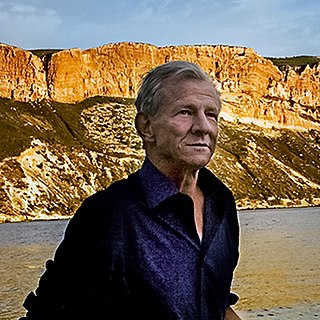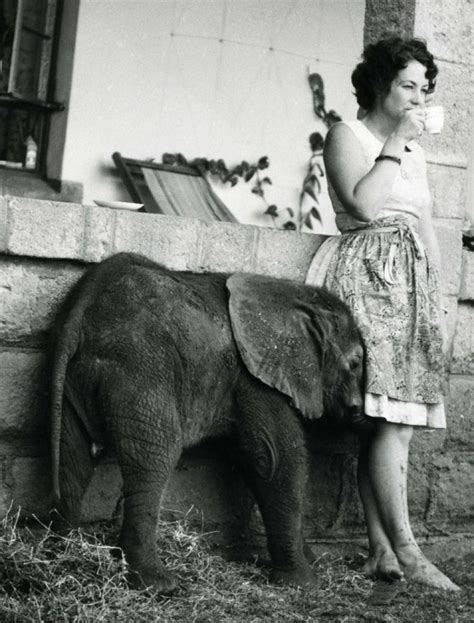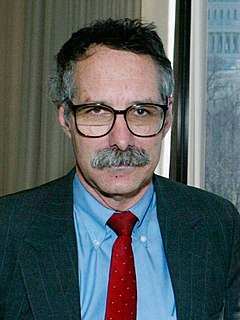A Quote by Peter Beard
We're adding a billion people every decade. We're just spin doctors. Whatever we do is supposedly great, and yet it's always at the expense of diversity and nature. We're like elephants. The ecology of the elephant is more similar to human than any other.
Related Quotes
Onyx is angry," Damian says. "Onyx has a right to be angry. You've got to remember, for many elephants, their life is that of a human in a war-torn country. Ravaged homes, killed relatives, separation," Damian says. Here's another thing I've learned over two months--every elephants here has a sad story. Every captive elephant's story is one of loss and separation. Something to remember every time you see happy people getting elephant rides.
Animals are indeed more ancient, more complex and in many ways more sophisticated than us. They are more perfect because they remain within Nature’s fearful symmetry just as Nature intended. They should be respected and revered, but perhaps none more so than the elephant, the world’s most emotionally human land mammal.
People prefer to be with people like themselves. For all the celebration of "diversity," it's sameness that dominates. Most people favor friendships with those who share similar backgrounds, interests and values. It makes for more shared experiences, easier conversations and more comfortable silences. Despite many exceptions, the urge is nearly universal. It's human nature.
[Elephants] are less agile and physically less adaptable than ourselves - Nature having developed their bodies in one direction and their brains in another, while human beings, on the other hand, drew from Mr. Darwin's lottery of evolution both the winning ticket and the stub to match it. This, I suppose, is why we are so wonderful and can make movies and electric razors and wireless sets - and guns with which to shoot the elephant, the hare, clay pigeons, and each other.
Then, when the Fed's fire hoses started spraying an elephant soup of liquidity injections in every direction, and its balance sheet grew by $1.3 trillion in just thirteen weeks compared to $850 billion during its first ninety-four years, I became convinced that the Fed was flying by the seat of its pants, making it up as it went along. It was evident that its aim was to stop the hissy fit on Wall Streetm and that the thread of a Great Depression 2.0 was just a cover story for a panicked spree of money printing that exceeded any other episode in recorded human history.
Shallow ecology is anthropocentric, or human-centred. It views humans as above or outside nature, as the source of all value, and ascribes only instrumental, or 'use', value to nature. Deep ecology does not separate humans - or anything else - from the natural environment. It does see the world not as a collection of isolated objects but as a network of phenomena that are fundamentally interconnected and interdependent. Deep ecology recognizes the intrinsic value of all human beings and views humans as just one particular strand in the web of life.
America and Europe are getting closer to each other. In the U.S. you've always had hip - hop, the blues, soul, and rock. For the last decade, there has always been a lot of electronic music in Europe. When I was just at Coachella, I noticed how the music they play there has become electronic, techno, deep house, more European - so I think it's more similar than before.
A great deal of the universe does not need any explanation. Elephants, for instance. Once molecules have learnt to compete and to create other molecules in their own image, elephants, and things resembling elephants, will in due course be found roaming around the countryside ... Some of the things resembling elephants will be men.
This is what metaphor is. It is not saying that an ant is an elephant. Perhaps; both are alive. No. Metaphor is saying the ant is an elephant. Now, logically speaking, I know there is a difference. If you put elephants and ants before me, I believe that every time I will correctly identify the elephant and the ant. So metaphor must come from a very different place than that of the logical, intelligent mind. It comes from a place that is very courageous, willing to step out of our preconceived ways of seeing things and open so large that it can see the oneness in an ant and in an elephant.
The great objects which presented themselves [to the Constitutional Convention] ... formed a task more difficult than can be well conceived by those who were not concerned in the execution of it. Adding to these considerations the natural diversity of human opinions on all new and complicated subjects, it is impossible to consider the degree of concord which ultimately prevailed as less than a miracle.








































